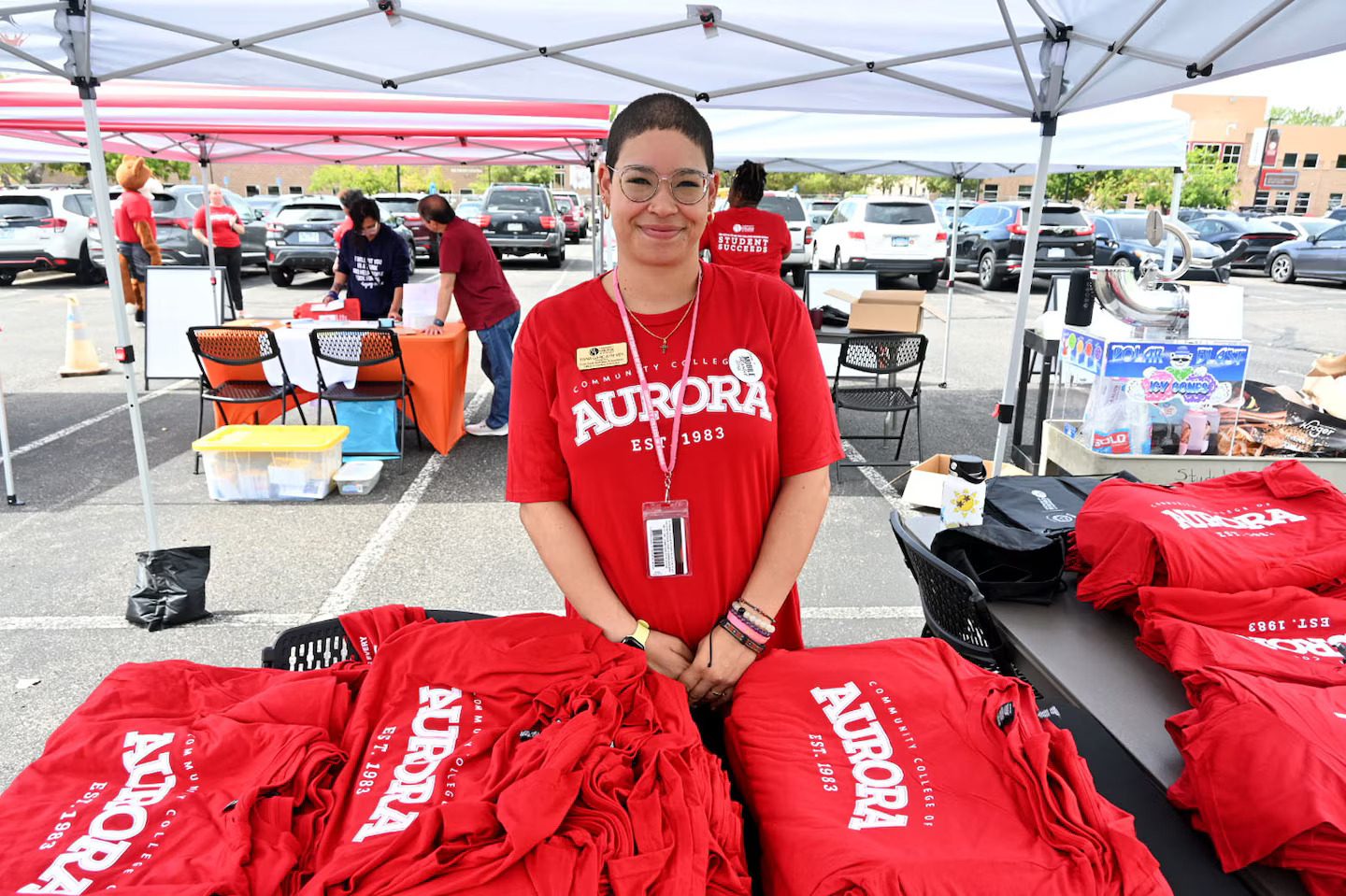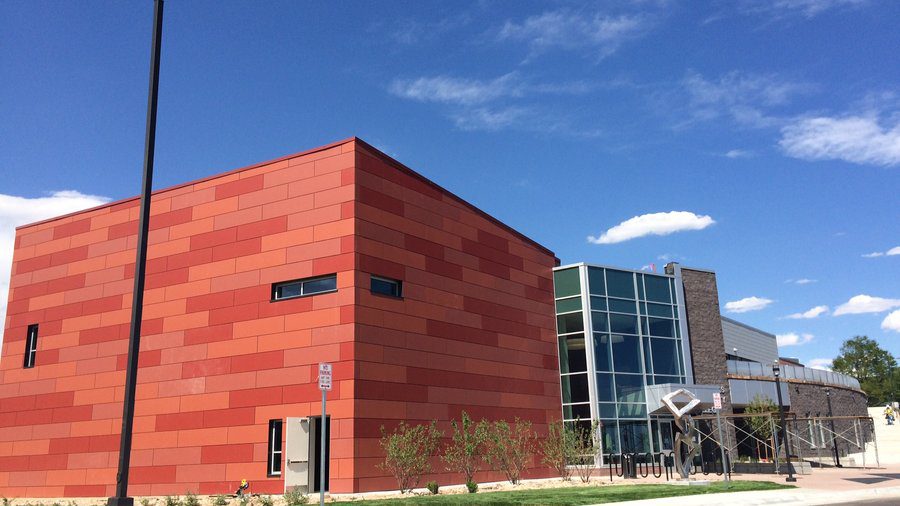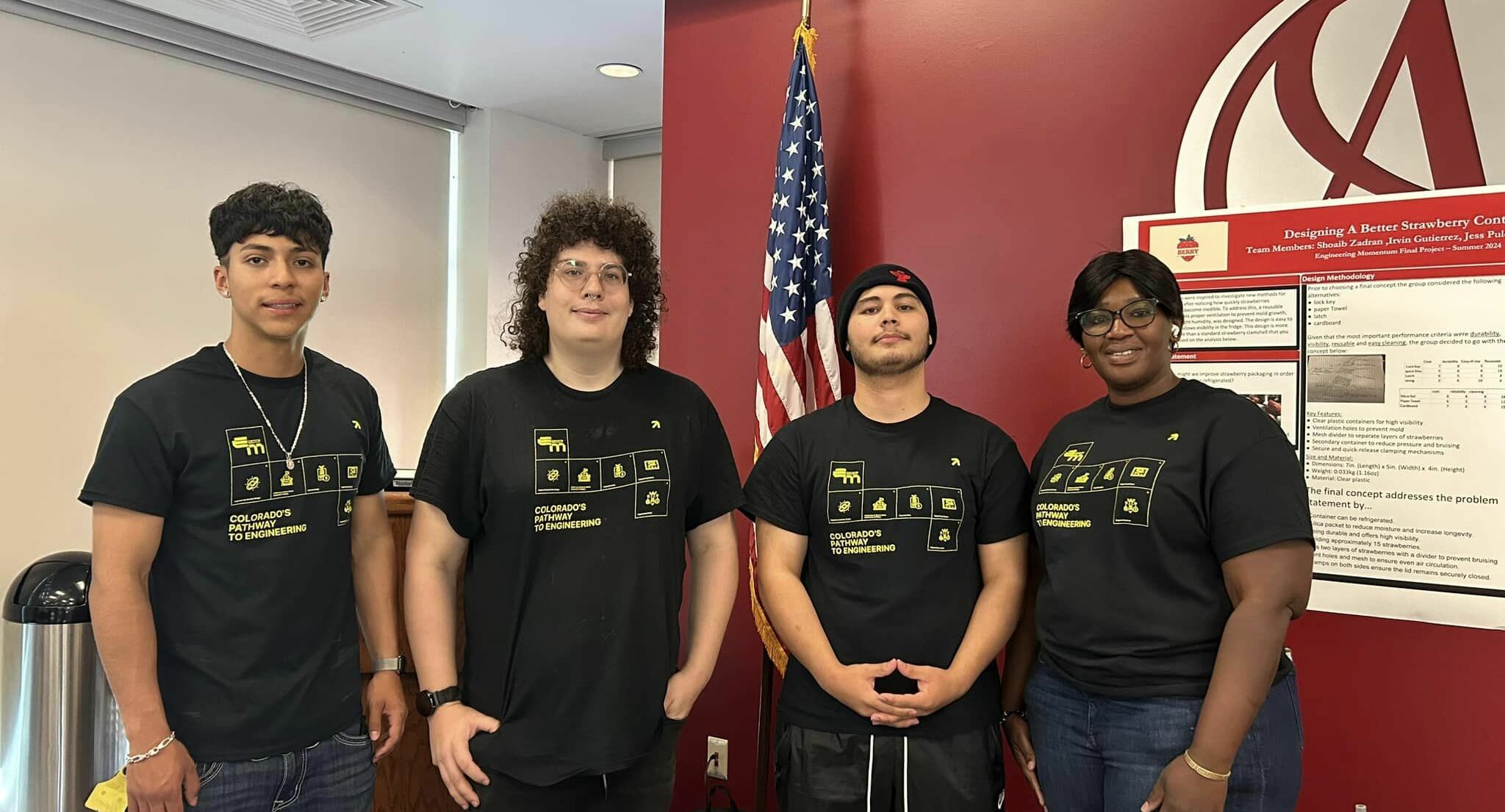
When Saman Nasur thinks about his education journey, he’s reminded of the astronaut Neil Armstrong.
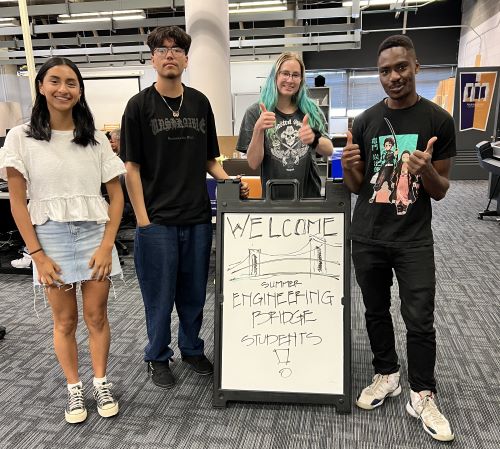
“When he went to the moon, he says, ‘One small step for man, one giant step for mankind,’” Nasur reflected. “That’s how it feels. I’m looking towards my goal, and it feels good to know that I’m one step closer.”
Nasur is among more than 100 students participating in Engineering Momentum, a federally funded program that prepares metro-area students for careers in engineering. Weeks before classes began at the Community College of Denver (CCD), Nasur and his cohort members gathered for a four-week “summer bridge” experience designed to brush up their math skills and introduce engineering concepts.
“Yesterday, we got to do an experiment with prosthetic limbs, where we had to create prosthetics using cardboard, bubble wrap, and tape,” he said. CCD faculty member “Jason [Burke] has been an awesome math teacher.”
Nasur, who dropped out of high school years ago, is excited to see where the program takes him. If all goes well, he hopes to transfer into engineering at a four-year university and own his own company one day.
“It’s been exhilarating,” he said. “It feels really good to be in a classroom setting and to be able to learn.”
Fostering Future Engineering Talent
Sparking that excitement is what the program is all about, said Janet Yowell, the director of strategic community college STEM initiatives at the University of Colorado Boulder. She has worked closely with staff at CCD and the Community College of Aurora (CCA) to get the project off the ground, with plans to expand to Red Rocks Community College, Front Range Community College, and Arapahoe Community College next fall.
Backed by a $10.9 million U.S. Department of Defense grant, Engineering Momentum leverages the proven STEM Core Model to combine math and engineering courses with wraparound support services. The program is designed for high school graduates and early-career community college students, offering year-round learning that starts with the summer bridge experience and continues through a two-year associate degree program, with the option to transfer to a university. During summer breaks, students gain practical experience through paid research internships.
The goal is to get more community college students typically underrepresented in engineering—students of color, first-generation learners, and veterans—to complete bachelor’s degrees and thrive in the field.
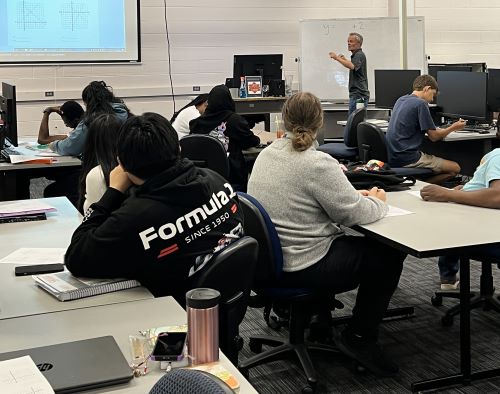
“There’s a strong correlation between academic test scores and income level, particularly in math,” Yowell explained. “Engineering Momentum levels the playing field by cohorting students in the same math class, where they learn together and tutor together. This approach—coupled with dedicated support and wraparound services—allows students to move from pre-college algebra to becoming calculus ready in one year.”
The grant also funds student support specialists who monitor learners’ progress and connect them with resources. Celeste Pegues, CCD’s program lead, says her students are often tied up with family and work obligations that can get them off track.
“We understand that there is more to life than just the school to career pipeline, and that there’s going to be other obstacles in their way,” she said. “We remind them that there are people at CCD and in this program who can help relieve those challenges so that they can focus on school.”
Kate Yonce, Pegues’ counterpart at CCA, has long taught math to the exact populations served through Engineering Momentum. She echoed Pegues’ comments, noting a little encouragement goes a long way.
“More of their success is due to the support they get—the understanding they get, the hugs they get,” she said. “Math is one of those subjects that students are most afraid of. They just need that extra emotional support.”
It’s exciting to see them gain real experience, get their associate’s degree here, and move on to a four-year university. To me, that’s the ultimate goal.
As the program grows, Yonce is eager to see Engineering Momentum develop into a true pathway at CCA. This summer, 21 new students enrolled in the summer bridge program at CCA, while 22 returning students completed competitive research internships.
“It’s exciting to see them gain real experience, get their associate’s degree here, and move on to a four-year university,” she said. “To me, that’s the ultimate goal.”
Bringing Skills to the Table
As one of 55 Engineering Momentum participants wrapping up summer internships, CCD student Emily Serrano is on her way to achieving that goal herself. Her position at the prestigious National Renewable Energy Laboratory (NREL) focuses on transit research.
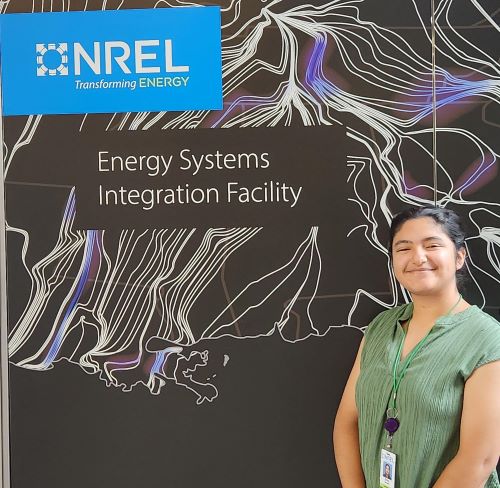
“Transportation is super important to how we get around the world and how people can access school, work, and healthcare,” she said. “It’s fundamental to the well-being of a person living in a city.”
Beyond reading case studies and writing literature reviews, Serrano has been able to attend seminars and presentations led by top-notch scientists. She said her NREL teammates appreciate the “fresh eyes” she brings to projects.
“In this internship, I’ve learned so much about myself and so much about the industry,” she added. “I feel much more valued as somebody who can implement a lot of perspectives and different ideas.”
That direct experience is an important component of the program, said Nick Stites, CU Boulder’s Director of the Integrated Teaching and Learning Program and Engineering Momentum’s principal investigator. He noted that 100% of students who interned at CU Boulder intend to transfer into an engineering program.
“Engineering Momentum’s academic year and summer experiences contribute to—and support—students’ interest in transferring to a university to pursue an engineering future,” he said.
For her part, Serrano plans to move on to the Metropolitan State University of Denver to earn a bachelor’s degree in civil engineering. She wants to continue working in the transportation sector, either as a researcher or designer for a transportation company.
As she adds skills and experiences to her resume, she’s grateful for CCD faculty and staff who have encouraged her along the way.
“Jump on as many opportunities as you can,” she advises fellow community college students. “It’s a big, changing landscape, and organizations are looking for anybody who can bring their skills and insights.”
Engineering Momentum is sponsored by the US Department of Defense, Office of Naval Research under ONR award #HQ00342220005. Any opinions, findings, and conclusions or recommendations expressed in this material are those of the author(s) and do not necessarily reflect the views of the Office of Naval Research.
